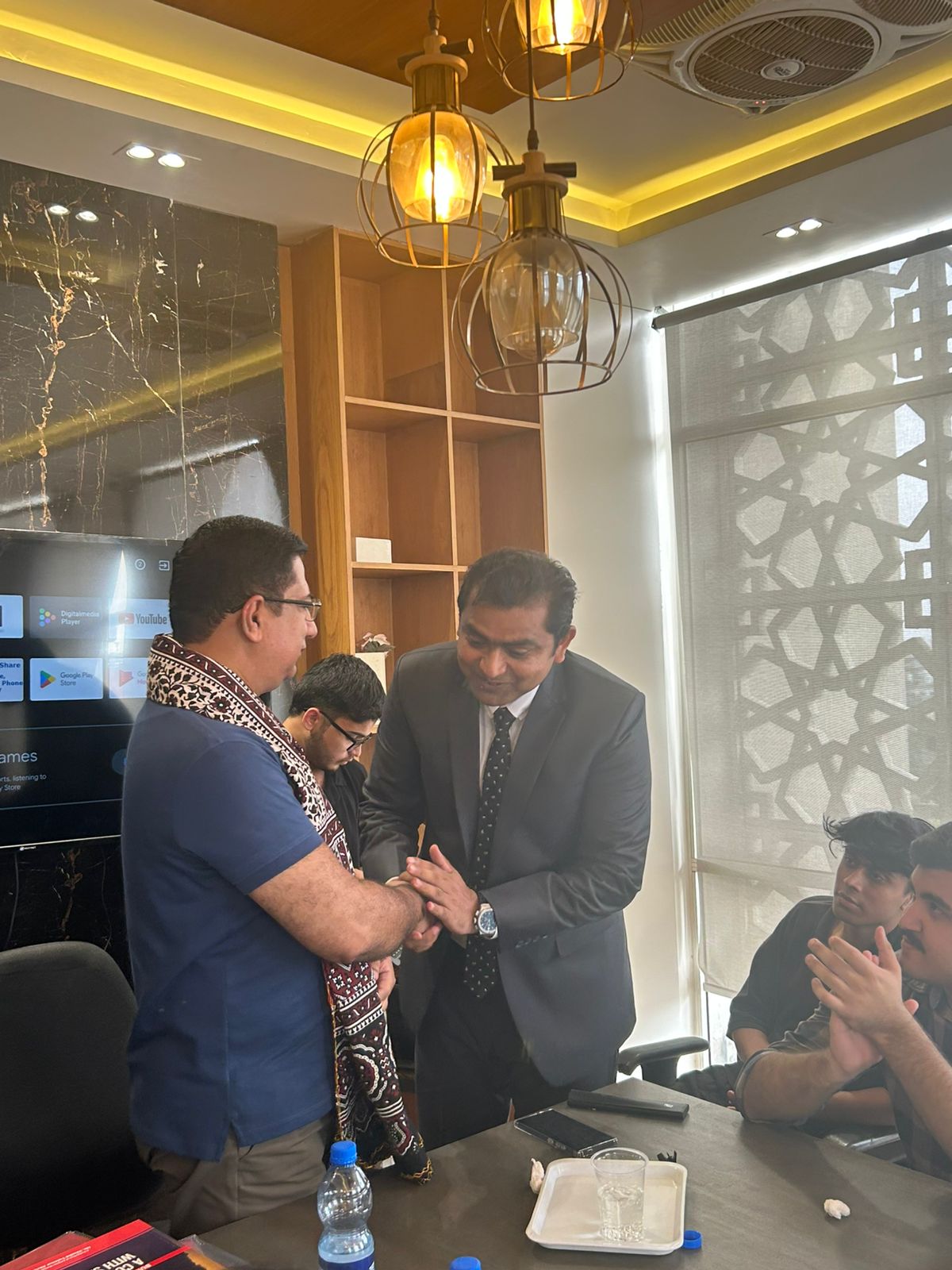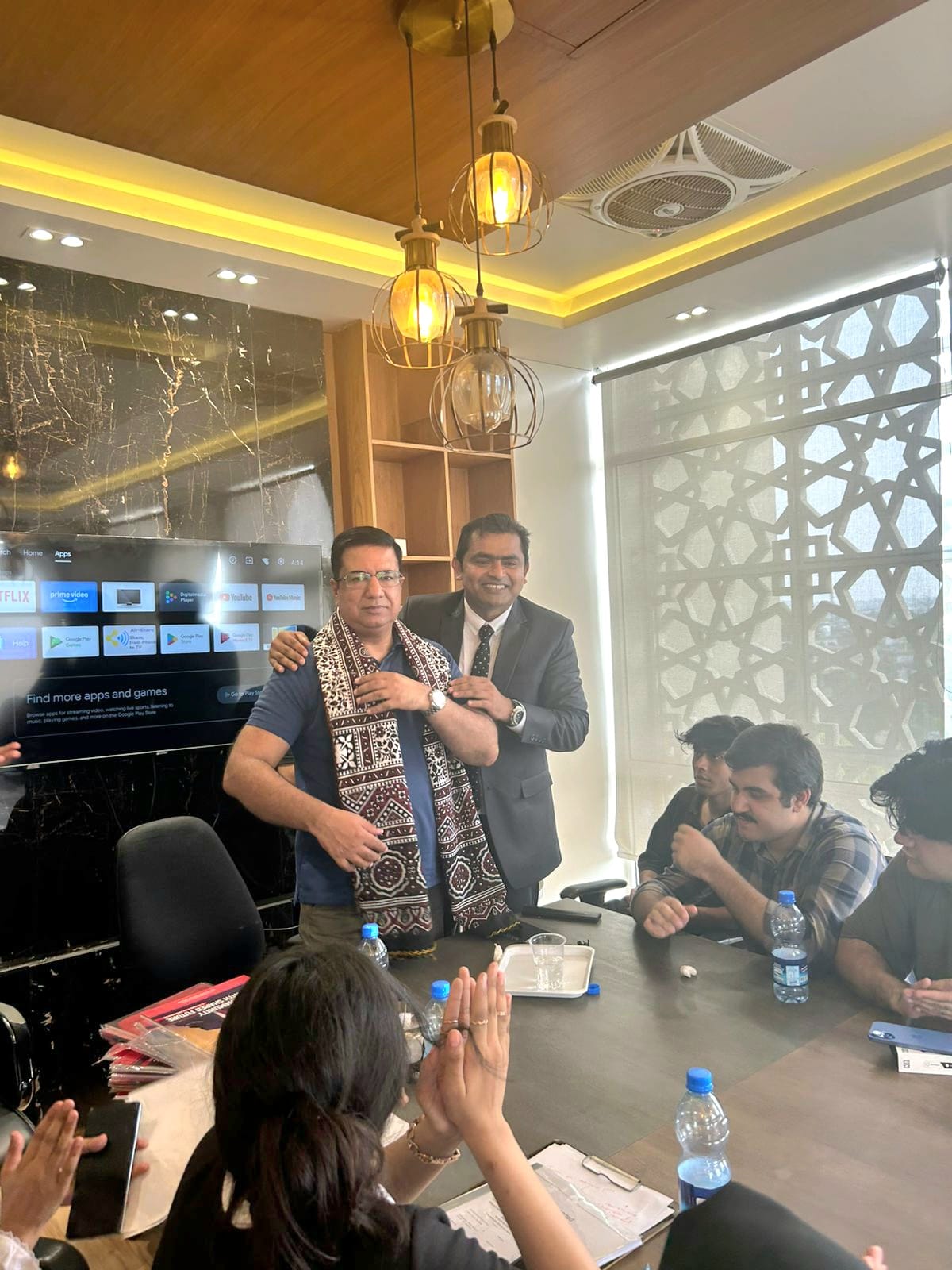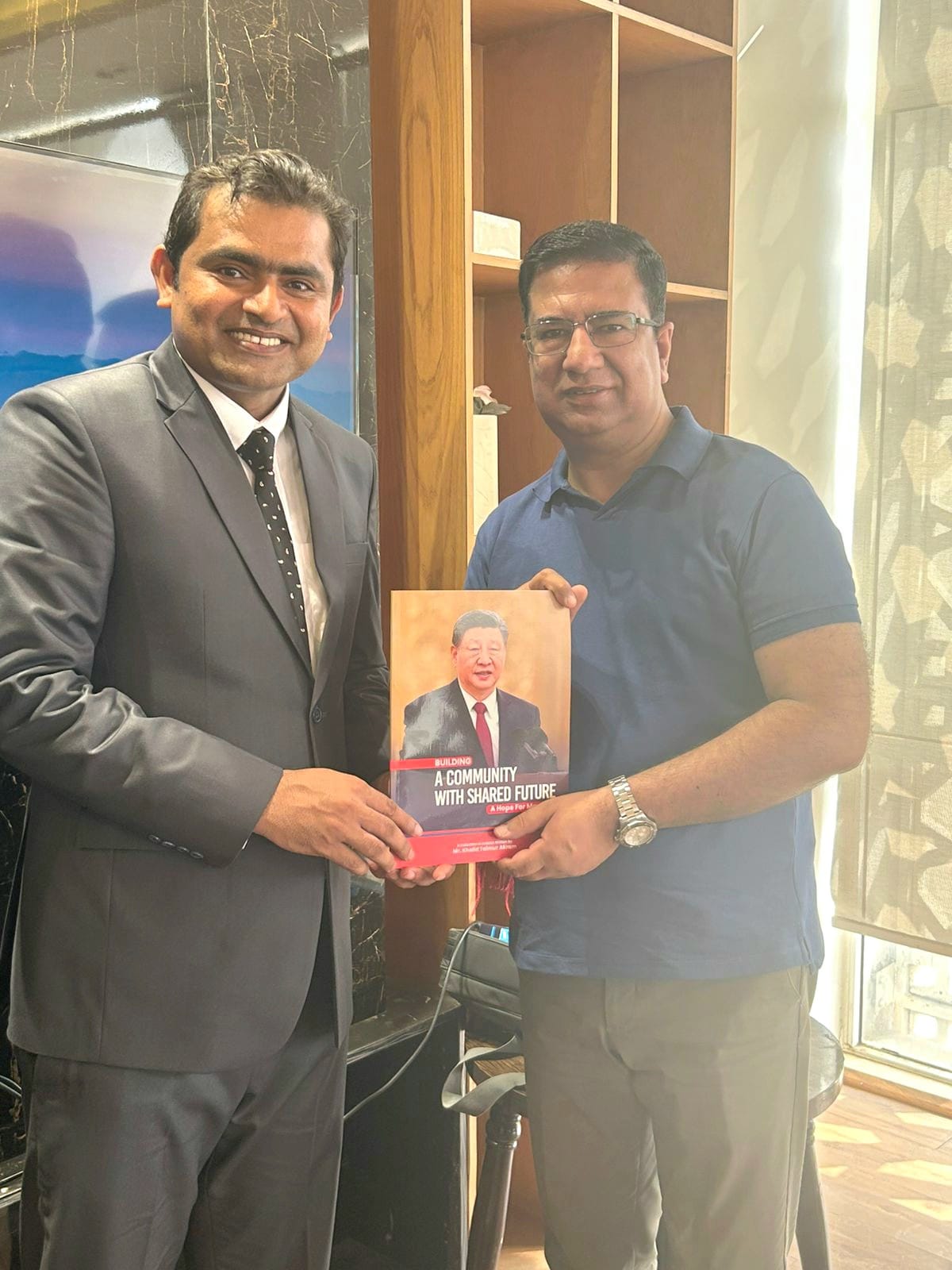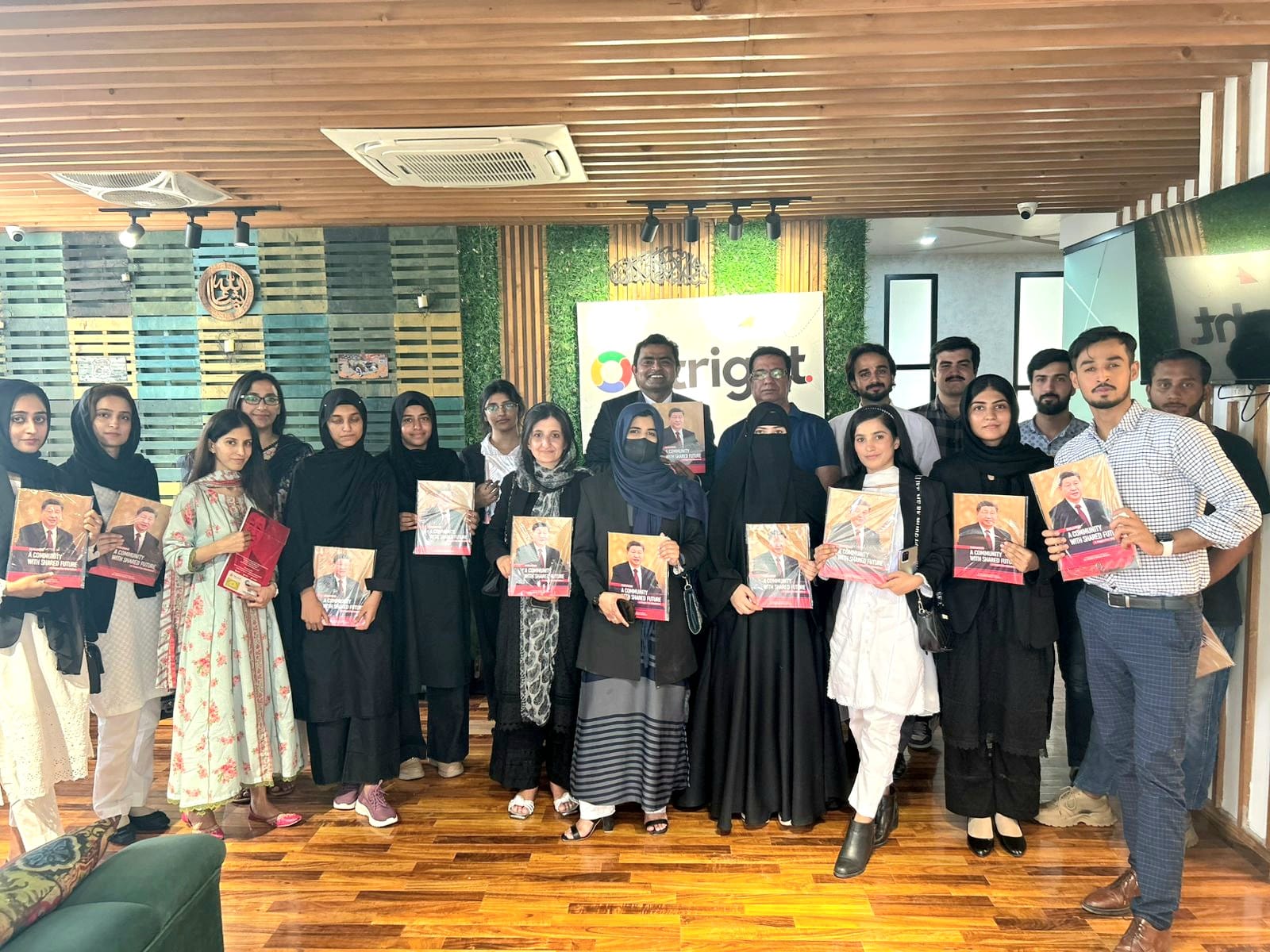Special Lecture delivered by Mr. Khalid Taimur Akram on “Corporate Law in the Age of CPEC: Legal Frameworks Driving Business Expansion and Investment” during a Taxation Workshop at Islamabad
On 29th June 2025, M. Khalid Taimur Akram, Executive Director, Pakistan Research Center for a Community with Shared Future (PRCCSF) delivered a significant lecture during a Taxation Workshop held in Islamabad from June 29 to July 1, 2025. The workshop was organized by Advocate Gulsher Mari Balouch, an Advocate of the High Court and specialist in taxation and corporate law, and Advocate Atuba Shahid. Mr. Akram’s presentation, titled “Corporate Law in the Age of CPEC: Legal Frameworks Driving Business Expansion and Investment,” focused on the critical relevance of the China-Pakistan Economic Corridor (CPEC), a flagship project of China’s broader Belt and Road Initiative (BRI).
 Mr. Khalid Taimur Akram lecture specifically addressed the legal taxation framework and related taxation policies. He highlighted the “Regional Taxation Framework” as a significant challenge to regional connectivity, noting the absence of a unified financial and legal framework, as well as the presence of diverse trade policies and tariff structures. While the summary provided does not offer detailed insights into the specific legal taxation framework or particular taxation policies discussed, it indicates these were central to his presentation.
Mr. Khalid Taimur Akram lecture specifically addressed the legal taxation framework and related taxation policies. He highlighted the “Regional Taxation Framework” as a significant challenge to regional connectivity, noting the absence of a unified financial and legal framework, as well as the presence of diverse trade policies and tariff structures. While the summary provided does not offer detailed insights into the specific legal taxation framework or particular taxation policies discussed, it indicates these were central to his presentation.
 Furthermore, Mr. Akram explored various aspects of the BRI and CPEC, emphasizing their direct implications for corporate law and the foundational frameworks necessary for fostering business expansion and investment within this dynamic geopolitical and economic landscape. It is likely that he outlined how existing corporate legal structures in the region interact with the demands and opportunities presented by the substantial infrastructure and economic projects under CPEC. The discussion would have covered regulatory environments that either encourage or hinder foreign direct investment and overall business growth, thus providing a foundation for a comprehensive examination of the fiscal policies governing these activities.
Furthermore, Mr. Akram explored various aspects of the BRI and CPEC, emphasizing their direct implications for corporate law and the foundational frameworks necessary for fostering business expansion and investment within this dynamic geopolitical and economic landscape. It is likely that he outlined how existing corporate legal structures in the region interact with the demands and opportunities presented by the substantial infrastructure and economic projects under CPEC. The discussion would have covered regulatory environments that either encourage or hinder foreign direct investment and overall business growth, thus providing a foundation for a comprehensive examination of the fiscal policies governing these activities.
 The lecture garnered a diverse audience, including students, tax experts, legal scholars, and business leaders, fostering lively discussions during the interactive session.
The lecture garnered a diverse audience, including students, tax experts, legal scholars, and business leaders, fostering lively discussions during the interactive session.









